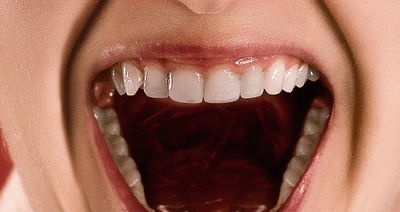|
 The human body is in constant interaction with the external environment around it. Violation of this interaction can lead to the development of a disease, in particular, tonsillitis. The human body is in constant interaction with the external environment around it. Violation of this interaction can lead to the development of a disease, in particular, tonsillitis.
In the mouth and pharynx (in the tonsils) and the environment around us, there are a large number of different microbes, including such as streptococcus, staphylococcus, pneumococcus, etc. These microbes, which are in the oral cavity and in the lacunae (crypts) of the tonsils, very often do not show their disease-causing properties. With a generally favorable state of the body, with its normal reactivity, which directly depends on the state of the nervous system, in response to the introduction of pathogenic microbes, a protective reaction develops, which protects a person from disease. Therefore, the presence of microbes does not always cause illness. This can happen when conditions change, when the body is weakened, sometimes excessive cooling, overwork, etc. Then the microbes manage to activate their activity, and a person is powerless to resist the disease.
A patient with a sore throat has a large number of microbes in the throat, most often streptococci or staphylococci. They are excreted together with phlegm or saliva when talking, coughing, sneezing. Therefore, in order not to infect others, one must adhere to certain sanitary and hygienic rules.
Recently, both our and foreign scientists have identified special viruses that sometimes cause? disease of the nasopharyngeal and other tonsils, They are called adenoviruses.
Viruses are very small microorganisms that are much smaller than microbes. They can only be seen through an electron microscope with a magnification of 100,000 times or more.
What are the reasons that weaken the body's defenses leading to angina?
It is known that colds are most often sick in the damp and cold season, that is, the hypothermia factor mainly acts. The role of such hypothermia in the occurrence of angina can be considered in such a way that the cold dramatically disrupts blood circulation, causing the narrowing of the blood vessels. This disrupts the coordination of vasoconstrictor and vasodilator nerves, adverse biochemical changes occur, which leads to a decrease in the body's resistance.
A predisposing moment for angina can also be local hypothermia, including the throat. Most often it can be from ice creamdrinking cold water or beer during hot seasons, etc.
 Normal nasal breathing plays a well-known role in the human body. Inhaled air is purified, warmed and humidified as it passes through the nasal passages. Local cooling of the throat can most often also be found in those people who constantly breathe through the mouth, which is the result of certain diseases of the nose or nasopharynx. Normal nasal breathing plays a well-known role in the human body. Inhaled air is purified, warmed and humidified as it passes through the nasal passages. Local cooling of the throat can most often also be found in those people who constantly breathe through the mouth, which is the result of certain diseases of the nose or nasopharynx.
Apparently, nutrition also has some importance in the incidence of angina, since monotonous food sometimes causes a weakening of the body's defenses. Lack of vitamins, vegetables and fruits, which occurs in winter, also weakens the body.
Unfavorable working conditions can serve as a predisposing moment for the occurrence of angina.
Increased dustiness, pollution, frequent fluctuations in high and low temperatures - all this has an adverse effect in terms of weakening the body's defenses.
In some cases, sore throats occur as a result of local cooling of distant organs, such as the arms or legs.
Here there is an oversensitive nervous system, which, as you know, constantly reacts by constricting and expanding blood vessels throughout the body when cooled. It should be noted that people who are physically hardened, accustomed to the cold and especially those with a stable nervous system, angina are very rare or may not be at all. Hence it is clear that the general condition of the body and the state of the nervous system play a decisive role in the occurrence of morbidity in general and angina in particular.
Preobrazhensky B.S. - How to protect yourself from angina and its consequences
Read now
All recipes
|
 The human body is in constant interaction with the external environment around it. Violation of this interaction can lead to the development of a disease, in particular, tonsillitis.
The human body is in constant interaction with the external environment around it. Violation of this interaction can lead to the development of a disease, in particular, tonsillitis. Normal nasal breathing plays a well-known role in the human body. Inhaled air is purified, warmed and humidified as it passes through the nasal passages. Local cooling of the throat can most often also be found in those people who constantly breathe through the mouth, which is the result of certain diseases of the nose or nasopharynx.
Normal nasal breathing plays a well-known role in the human body. Inhaled air is purified, warmed and humidified as it passes through the nasal passages. Local cooling of the throat can most often also be found in those people who constantly breathe through the mouth, which is the result of certain diseases of the nose or nasopharynx.






